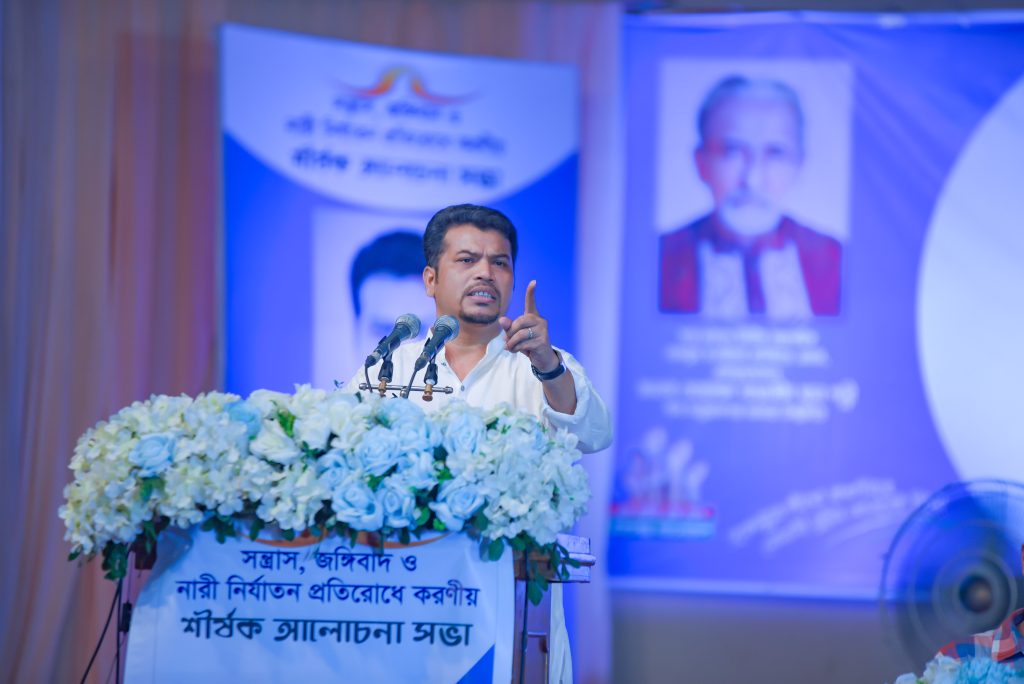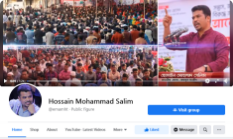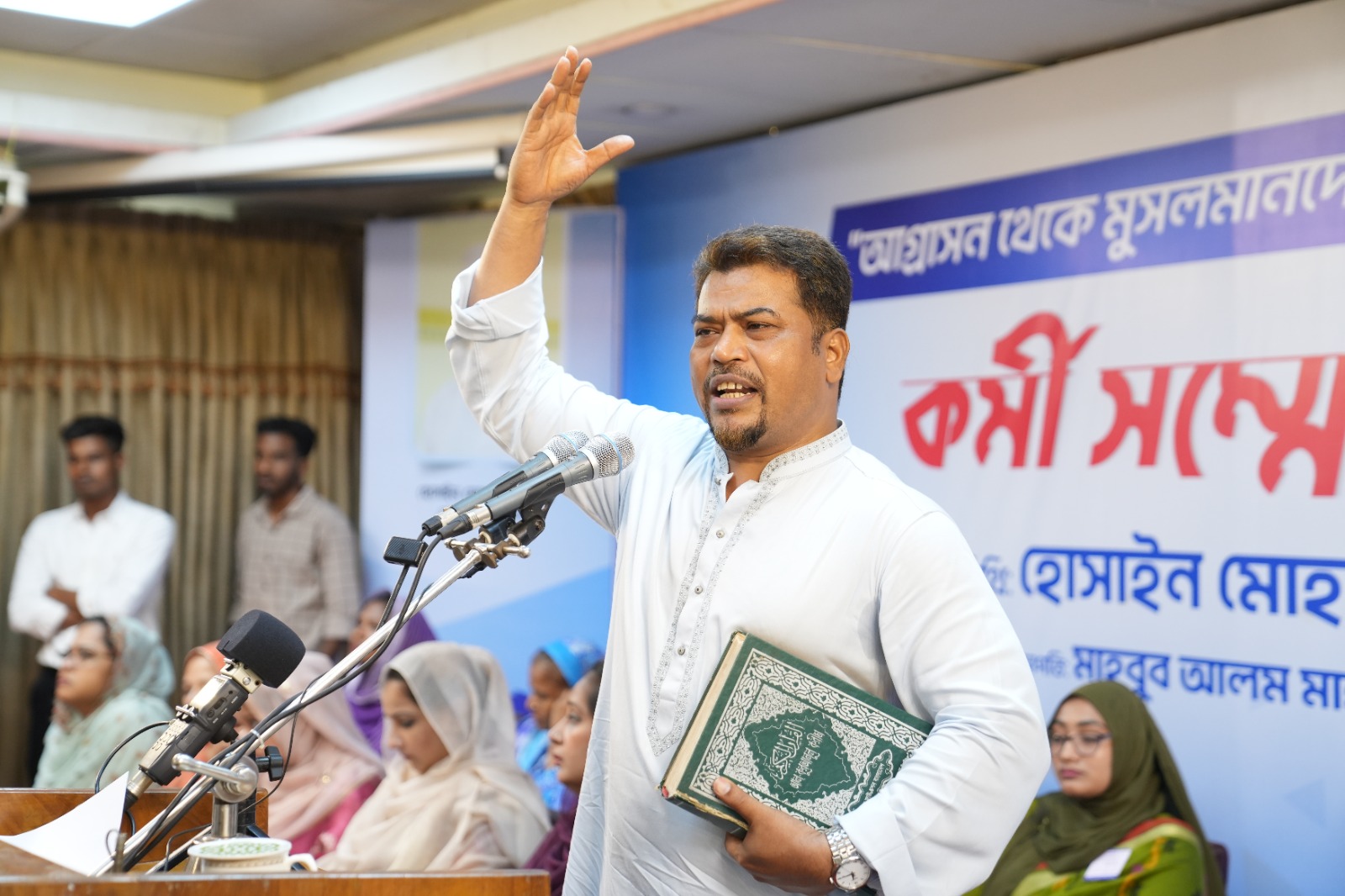Let’s move away from the politics of the day and come together on the path of solutions;
Hossein Mohammad Selim.
On May 1, 1886, in the Haymarket Square of the city of Chicago in the United States, workers took part in a labour demonstration to demand fair wages and an eight-hour workday. During the protest, police opened fire on the workers, leading to numerous casualties. In commemoration of those who were injured or killed, the day has since been observed as “May Day” or “International Workers’ Day.”
It’s important to remember that the tragic incident in Chicago occurred about a century and a half ago. Following the Renaissance in Europe, transformative scientific and technological advancements took place, leading to industrial revolutions and the establishment of extensive factories. This brought about a shift in the economic and political landscape of Europe. However, as scientific and technological progress advanced, a certain worldview emerged in European societies, where economic exploitation became unchecked. Their economy was profit-oriented, and politics followed a capitalistic democratic system. Consequently, they adopted an economic system that perpetuated injustice.
When a society departs from justice, even if the ruling class is powerful, the flames of resentment burn within the hearts of the people. Thus, the struggle against national injustice gives rise to movements such as the farmers’ movement, labour movement, student movement, and other similar protests collectively known as class struggles. These movements, driven by the force of power, have been suppressed using bullets and bayonets.
As a result, the concept of “class struggle” emerged, manifesting in various movements like the farmers’ movement, labour movement, and student movements, etc.
On that day in Chicago, many workers’ lives were lost while participating in a protest against class inequality. To combat class disparities, thinkers like Karl Marx, Hegel, and Engels proposed socialism as a path to freedom. Those who embraced socialism or communism sought to unite and initiate a social revolution, particularly empowering agricultural and labour workers. Socialists considered May Day as a special day to observe, using it to raise awareness among themselves.
Nowadays, many progressive democratic countries also observe May Day as a fashion statement. The most ironic aspect is that even in the United States, May Day is celebrated, although it is largely viewed with scepticism by those on the left. They use this day to speak about workers’ rights, critique the failures of capitalist democracy, and voice opposition to oppressive policies by the authorities.
Left-leaning individuals use the day to discuss workers’ rights, highlight the failures of capitalist democracy, and condemn the exploitation policies of the ruling class. The ongoing tension between socialism and capitalism is repeatedly brought to the forefront on this day. Supporters of democracy repeatedly confront a sin, presenting it to the opposition as a reproachful error.
However, notably, no Islamic party observes this day. They perceive it as a Western concept with no connection to Islamic teachings. Even though the Hezbut Tawheed does not officially celebrate this day, we view it with special importance. Allah has bestowed upon us knowledge of such a beautiful and impeccable ideal that, when implemented, can truly alleviate the suffering of oppressed labourers. We strive to convey this ideal to humanity, understanding its origins, reasons for such occurrences, and the path to resolution. Let’s discuss these two aspects.
Hélder Câmara (1909-1999), a Brazilian Archbishop, identified himself as a communist. He once humorously said, “When I give food to the poor, they call me a saint. When I ask why the poor have no food, they call me a communist.” This statement reflects the irony faced by those who question the lack of food for the poor. The dichotomy in labels, whether being hailed as a saint or criticized as a communist, underscores the complexities of addressing poverty and injustice.
However, the communists failed to add food to the mouths of the poor in their field of action. While their ideology was attractive, in reality, it proved bitter. On the other hand, we, followers of Hezbut Tawheed, believe that providing food to the poor is a recurring commandment in the Quran by Allah. Yet, the question arises: why is there a lack of food for the poor? Islam provides the correct answer to this question and demonstrates its practical implementation in the field.
We believe that Islam teaches us that the poor are not helpless due to a lack of resources; rather, the absence of food is a consequence of systemic issues. Hezbut Tawheed members, the majority of whom are impoverished but not helpless, work together in various agricultural activities. They cultivate crops, work in their own cattle farms, and engage in fish farming. Through their efforts, the community benefits, and collectively they strive to address food insecurity.
Socialists dream of transforming the entire state into a collective farm for the sake of food security. Although they may not achieve this goal, inspired by the ideal of Hezbut Tawheed, many joint farms have emerged across the country where hundreds of people find employment.
One remarkable distinction between capitalism and socialism in Islam is the concept of individual responsibility. Islam teaches that individuals are accountable to one another. Islam makes humanity aware of why one person is responsible for another. Islam conveys the message that there is an ultimate authority to whom you will be answerable.
In summary, the Hezbut Tawheed members, inspired by Islamic ideals, have established joint farms across the country where people, although mostly impoverished, have found employment. They work collectively, adhering to the principles of Hezbut Tawheed‘s vision, striving to address the issue of food security at the grassroots level.
There is an all-powerful authority who is the ruler of all rulers, the eternal sovereign, omnipresent, the master of your life and death. This awareness must be present to respond in the Hereafter to this powerful authority, always feeling His watchful gaze. This is an inherent concept.
Believing in this power keeps humans away from all injustices, tyranny, oppression, and wrongdoing. Those who lack faith in this power do not feel the need to judge right from wrong in the world. They cannot provide any basis for explaining why humans should adhere to principles of justice and morality. Consequently, powerful individuals, utilizing their authority, have made the pursuit of self-interest the ultimate goal in life.
In the presence of such a powerful authority, believers are motivated to uphold justice and morality in their actions, guided by the understanding that they are accountable for their deeds in the Hereafter. This belief serves as a moral compass, influencing individuals to strive for righteousness and justice, avoiding actions that cause harm and suffering to others.
When socialism became powerless in providing theoretical solutions to economic crises, they too faced a stage where they could not come up with a practical solution. This is because socialism rejects the individual’s right to enjoy wealth, denies their personal ownership, and rejects the individuality of desires and inclinations. By nationalizing everything, the individual has lost the initiative to pursue their own well-being.
As a result, individuals have lost their entrepreneurial spirit, as the state has taken over their efforts. Despite providing for the needs and wants of their own children, individuals have to contribute to communal care, even if they do not get adequate rest themselves. This is the inherent nature of humans, and rejecting this nature will not lead to a sustainable way of life.
Islam, on the other hand, considers every individual as a human being. It acknowledges that every worker is a person, and the descendants of Adam and Eve are brothers and sisters. Therefore, one must show compassion towards every individual. Secondly, every individual is considered as a representative of Allah on Earth. This world is not the end; it is a temporary life, and the real test is for the Hereafter. It is a test for humans to be compassionate towards others and understand the rights of fellow human beings. If you comprehend the rights of human beings, it will be seen as your test in this life. This life is the examination hall, and the test will be presented before you. If you return the rights of humans here, if you do not indulge in luxuries, if you sacrifice and keep a role for others, then you will be the rightful heir in this endless life of the Hereafter.
Islam asserts that your brother has rights and claims over your wealth. Allah has endowed you with intellect and capabilities through which you acquire wealth. However, how you use this wealth in relation to your fellow human beings is your test. Since you will not have anything until the end, it is appropriate for you to dedicate this acquisition for the benefit of others. This is what makes you truly great. Islam imparts teachings about the distinction between justice and injustice to human souls. All your life experiences, knowledge, wisdom, intellect, and power constitute your examination. Now, if you utilize these for the welfare of others, you will be great in this world and receive respect and rewards in the Hereafter.
This foundational teaching from Islam influences a person to become a servant instead of an exploiter. It encourages a life oriented towards the well-being of others rather than being self-centred. It is not an utopian idea; it is history. The Messenger Muhammad (peace be upon him) established such a way of life known as Deen ul Haq. There is no interest, usury, or exploitative business dealings there; instead, there is kherat, utsarg, qurbani, fitrah, and transactions based on satisfaction. Therefore, a society arises where a person who governs follows the representation of Allah. Such a person will receive the same amount of national allowance as an ordinary employee. They will reside in a house where ordinary citizens live. They will not have any protective force for security.
Instead, there will be a military force to safeguard the entire nation. Therefore, there is no possibility of any political injustice in this system. In this governance system, there is no place for a family-centric rule. The ruler will present his statement in front of the people standing in the mosque. There is no barrier or censorship between the people and the ruler. The people have the complete right to participate directly in national affairs. In today’s parliament, an ordinary person cannot enter. In the governance system of Islam, a common labourer, a worker, a rickshaw puller, can stand and say, “I have been given less wages.” Before the ruler takes shelter from the scorching sun, the labourer’s wages are paid. He is your brother; you will not make him work outside his capacity, and you will not speak harshly to him. If these policies were followed, the incident of labourer killings in Chicago would not have occurred. There would have been no need to observe International Workers’ Day on May 1st.
Our statement is that various lifestyles have been adopted in human life one after another. However, even for a day, war, bloodshed, injustice, and oppression have not ceased. Instead, day by day, the statistics of all kinds of crimes are increasing. After the failure of all these systems, we propose that there is only one open path in front of humanity now. That is to return to the straightforward and easy path given by the Creator, the Sirat al-Mustaqeem. This is the lifestyle through which the solution to all personal, family, social, national, economic, and spiritual crises of humans is possible.




